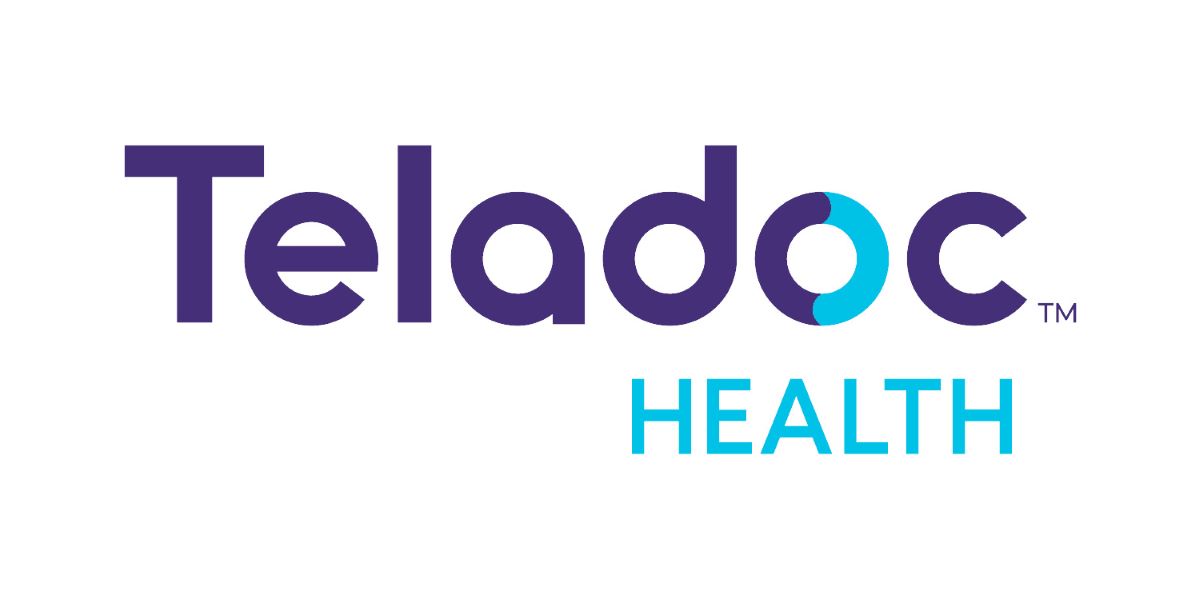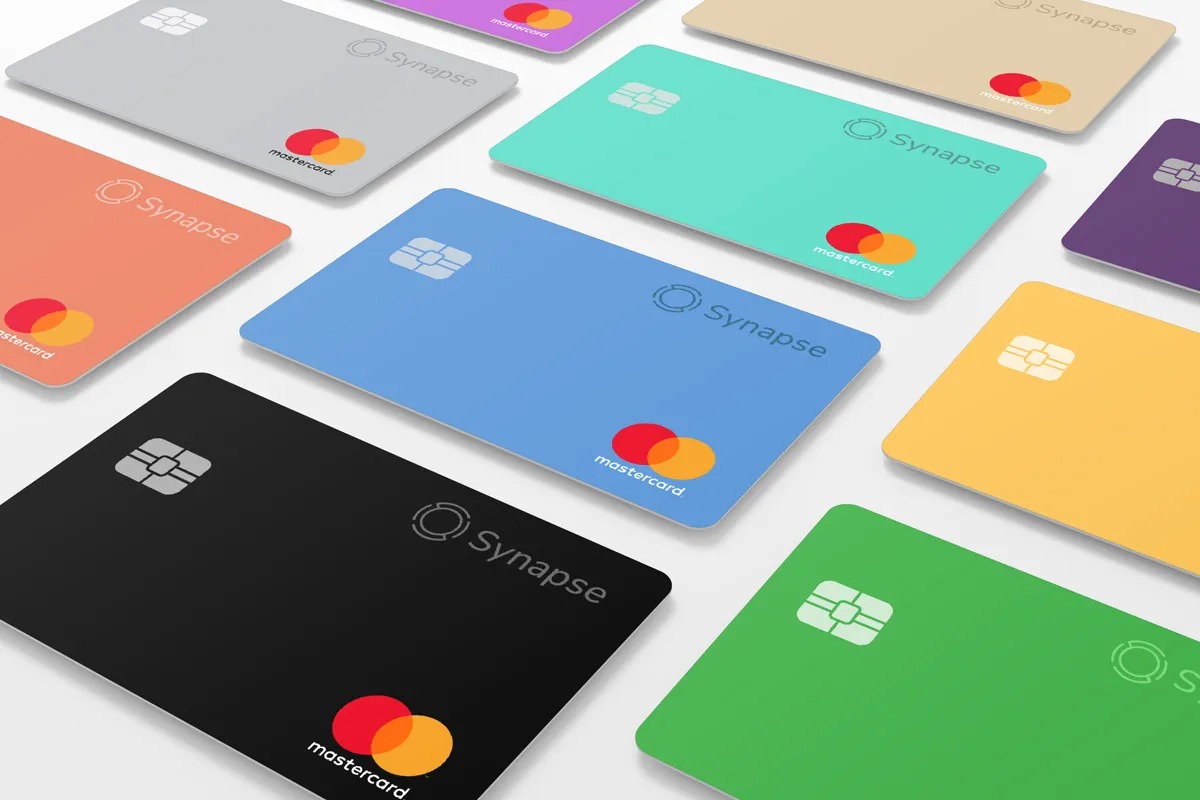

Finance
What Insurance Does Walgreens Accept?
Published: November 18, 2023
Walgreens accepts a wide range of insurance plans for your convenience. Find out which ones are accepted and start saving on your prescriptions today!
(Many of the links in this article redirect to a specific reviewed product. Your purchase of these products through affiliate links helps to generate commission for LiveWell, at no extra cost. Learn more)
Table of Contents
- Introduction
- Health Insurance Coverage at Walgreens
- Private Health Insurance Plans Accepted
- Medicaid Insurance Plans Accepted
- Medicare Insurance Plans Accepted
- Other Government Insurance Plans Accepted
- Prescription Discount Cards Accepted
- Out-of-Network Insurance Coverage
- How to Verify Insurance Coverage at Walgreens
- Conclusion
Introduction
When it comes to managing your healthcare needs, it’s important to know what insurance options are accepted by the pharmacies you visit. Walgreens, one of the largest retail pharmacy chains in the United States, understands the importance of accessible healthcare services. This is why they strive to accept a wide range of insurance plans to accommodate diverse patient needs.
Whether you’re seeking prescription medications, over-the-counter products, or a flu shot, knowing what insurance Walgreens accepts is essential for a seamless and affordable healthcare experience. In this article, we will explore the various types of insurance accepted by Walgreens, including private health insurance plans, Medicaid, Medicare, and other government insurance plans. We will also discuss the availability of prescription discount cards and the coverage offered for out-of-network insurance.
Understanding the insurance options accepted by Walgreens can help you make informed decisions about where to get your prescriptions filled and how to maximize your benefits. So, let’s dive in and explore the insurance coverage offered by Walgreens, ensuring that you can access the healthcare products and services you need.
Health Insurance Coverage at Walgreens
Walgreens recognizes the importance of health insurance coverage in accessing affordable healthcare services. That’s why they accept a wide variety of insurance plans to cater to different patients’ needs. Here are the key types of insurance coverage you can use at Walgreens:
- Private Health Insurance Plans: Walgreens accepts health insurance plans from major providers such as Aetna, UnitedHealthcare, Cigna, Humana, and many others. If you have private health insurance, it’s likely that Walgreens will be in-network, allowing you to use your insurance benefits for prescriptions, vaccines, and other healthcare needs.
- Medicaid: Walgreens participates in Medicaid, the government health insurance program for low-income individuals and families. If you are covered by Medicaid, you can visit Walgreens to get your prescription medications filled and receive other pharmacy services covered under your plan.
- Medicare: Walgreens also accepts Medicare, the federal health insurance program primarily for individuals 65 and older, as well as people with certain disabilities. If you have Medicare Part D prescription drug coverage, you can utilize it at Walgreens to fill your prescriptions and receive other Medicare-covered services.
- Other Government Insurance Plans: In addition to Medicaid and Medicare, Walgreens also accepts various government insurance plans, such as TRICARE for eligible military personnel and veterans, as well as the Federal Employees Health Benefits Program (FEHBP) for federal employees and their families.
It’s important to note that while Walgreens strives to accept a broad range of insurance plans, the coverage may vary depending on your specific plan and the terms negotiated between Walgreens and your insurance provider. Therefore, it’s always a good idea to verify your coverage and benefits with your insurance company before visiting Walgreens.
Next, we’ll explore the private health insurance plans accepted by Walgreens, giving you a better understanding of the options available to you.
Private Health Insurance Plans Accepted
Walgreens understands the importance of partnering with private health insurance plans to provide their customers with a wide range of coverage options. Here are some of the major private health insurance plans that are accepted at Walgreens:
- Aetna: As one of the largest health insurance providers in the country, Aetna is accepted at Walgreens pharmacies nationwide. Whether you have an Aetna HMO, PPO, or POS plan, you can use your insurance benefits at Walgreens for prescription medications and other healthcare needs.
- UnitedHealthcare: Walgreens also accepts UnitedHealthcare, a leading provider of health insurance coverage. Whether you have a UnitedHealthcare HMO, PPO, or EPO plan, you can utilize your insurance benefits at Walgreens to fill prescriptions and receive other pharmacy services.
- Cigna: If you have Cigna health insurance, you’ll be pleased to know that Walgreens accepts Cigna plans. Whether you have a Cigna HMO, PPO, or EPO plan, you can visit Walgreens for prescription medications and other healthcare products covered by your insurance plan.
- Humana: Walgreens recognizes Humana as one of the leading health insurance providers, and they accept Humana plans at their pharmacies. Whether you have a Humana HMO, PPO, or POS plan, you can use your insurance benefits at Walgreens to get the medications and healthcare services you need.
- Blue Cross Blue Shield (BCBS): Walgreens partners with several regional Blue Cross Blue Shield plans across the country. If you have a BCBS plan, you can use your insurance benefits at Walgreens pharmacies to fill prescriptions and receive other covered healthcare services.
These are just a few examples of the private health insurance plans accepted at Walgreens. It’s important to note that the list may vary depending on your location, so it’s always a good idea to verify with your insurance provider or Walgreens to confirm the acceptance of your specific plan.
If you have a different private health insurance plan not listed here, it’s still worth checking with Walgreens to see if they accept your insurance. Many other popular insurance providers are accepted, and Walgreens aims to partner with a wide range of companies to ensure accessibility for their customers.
Next, we’ll explore the Medicaid insurance plans accepted at Walgreens, providing options for individuals and families with low incomes.
Medicaid Insurance Plans Accepted
Walgreens acknowledges the importance of Medicaid, a government healthcare program that provides coverage for individuals and families with limited income. To ensure accessibility for Medicaid beneficiaries, Walgreens accepts a range of Medicaid insurance plans. Here are some of the Medicaid plans that are accepted at Walgreens:
- State Medicaid Programs: Walgreens participates in the Medicaid programs offered by various states across the country. These state-specific Medicaid plans provide coverage for eligible individuals and families. If you are enrolled in your state’s Medicaid program, you can visit Walgreens to fill your necessary prescription medications.
- Managed Care Organizations (MCOs): In some states, Medicaid programs are administered through managed care organizations. These MCOs work with various healthcare providers, including Walgreens, to ensure accessible and comprehensive healthcare services for Medicaid beneficiaries. If you are covered by a Medicaid MCO plan, you can use your coverage at Walgreens.
- Children’s Health Insurance Program (CHIP): Walgreens also accepts insurance coverage through the Children’s Health Insurance Program, commonly known as CHIP. CHIP provides comprehensive healthcare coverage for children in low-income households. If your child is covered under CHIP, you can utilize the benefits at Walgreens pharmacies.
It’s important to note that Medicaid coverage can vary by state, and not all Medicaid plans may be accepted at every Walgreens location. It’s advisable to verify with your Medicaid provider or contact Walgreens directly to confirm the acceptance of your specific Medicaid plan at your desired pharmacy location.
By accepting Medicaid insurance plans, Walgreens ensures that individuals and families with limited financial resources have access to quality pharmacy services, including prescription medications and other essential healthcare products. This commitment to inclusivity helps bridge the gap in healthcare access and promotes the overall well-being of Medicaid beneficiaries.
In the next section, we will explore the Medicare insurance plans accepted by Walgreens, providing options for seniors and individuals with certain disabilities.
Medicare Insurance Plans Accepted
Walgreens recognizes the importance of Medicare, the federal health insurance program primarily for individuals 65 years and older, as well as people with certain disabilities. To cater to the needs of Medicare beneficiaries, Walgreens accepts a variety of Medicare insurance plans. Here are some of the Medicare plans that are accepted at Walgreens:
- Medicare Part D Prescription Drug Plans: Walgreens participates in Medicare Part D, the prescription drug coverage program offered through private insurance companies approved by Medicare. If you have a Medicare Part D plan, you can visit Walgreens to fill your prescriptions and take advantage of other pharmacy services covered by your plan.
- Medicare Advantage Plans: Walgreens also accepts Medicare Advantage Plans, also known as Medicare Part C. These are health plans offered by private insurance companies approved by Medicare. If you have a Medicare Advantage plan, you can utilize your insurance benefits at Walgreens for prescription medications and other covered healthcare services.
- Medicare Supplement Plans: Walgreens accepts Medicare Supplement plans, also known as Medigap plans. These plans help cover the gaps in Original Medicare, including copayments, coinsurance, and deductibles. If you have a Medicare Supplement plan, you can use it at Walgreens to supplement your Medicare coverage for prescription medications and other healthcare needs.
It’s important to note that while Walgreens accepts a wide range of Medicare insurance plans, the coverage may vary depending on your specific plan and the terms negotiated between Walgreens and your insurance provider. It’s always recommended to verify your coverage and benefits with your specific Medicare plan or contact Walgreens directly to ensure acceptance at your desired pharmacy location.
By accepting Medicare insurance plans, Walgreens ensures that seniors and individuals with certain disabilities have access to affordable and convenient pharmacy services. This commitment to Medicare beneficiaries helps them manage their healthcare needs more effectively and promotes their well-being and quality of life.
Next, let’s take a look at the other government insurance plans accepted by Walgreens, providing coverage options for military personnel, veterans, and federal employees.
Other Government Insurance Plans Accepted
Walgreens understands the diverse healthcare needs of individuals who are covered by other government insurance plans. To ensure accessibility and convenience, Walgreens accepts various government insurance plans. Here are some of the other government insurance plans that are accepted at Walgreens:
- TRICARE: Walgreens partners with TRICARE, the healthcare program for eligible military personnel, veterans, and their families. If you are covered by TRICARE, you can visit Walgreens for prescription medications and other healthcare products and services covered under your plan.
- Federal Employees Health Benefits Program (FEHBP): Walgreens accepts insurance coverage through the Federal Employees Health Benefits Program, which provides healthcare benefits to federal employees, retirees, and their families. If you are covered by FEHBP, you can utilize your insurance benefits at Walgreens pharmacies.
- Indian Health Service (IHS): Walgreens also acknowledges the Indian Health Service, which provides healthcare services to Native American and Alaska Native individuals and families. If you are covered by the Indian Health Service, you can access prescription medications and other essential healthcare products and services at Walgreens.
- VA Community Care Network: Walgreens participates in the VA Community Care Network, which provides healthcare services to eligible veterans when the Department of Veterans Affairs is unable to directly provide the care. If you are eligible under the VA Community Care Network program, you can receive prescription medications and other healthcare services at Walgreens.
By accepting these government insurance plans, Walgreens ensures that individuals and families who are eligible for these programs have access to quality pharmacy services and healthcare products. This commitment to serving those who have served their country and other government-funded programs helps bridge barriers to healthcare access and promotes overall well-being.
It’s important to note that the coverage offered under these government insurance plans may vary depending on the specific plan and the terms negotiated between Walgreens and the insurance provider. It’s advisable to verify your coverage with your specific government insurance plan or contact Walgreens directly to ensure acceptance at your desired pharmacy location.
In the next section, we’ll explore the availability of prescription discount cards accepted at Walgreens, offering additional savings opportunities for customers.
Prescription Discount Cards Accepted
In addition to accepting various insurance plans, Walgreens also recognizes the value of prescription discount cards in helping customers save on their medications. Prescription discount cards are a great way to access lower prices for prescription drugs, even if you don’t have insurance or if your insurance doesn’t cover a specific medication. Walgreens gladly accepts a wide range of prescription discount cards to provide customers with additional savings opportunities. Here are some examples of prescription discount cards accepted at Walgreens:
- Walgreens Prescription Savings Club: The Walgreens Prescription Savings Club is a membership program that offers discounted prices on thousands of brand-name and generic medications. By joining the club, members can access exclusive savings on their prescriptions and other healthcare products available at Walgreens.
- GoodRx: GoodRx is a popular prescription discount platform that offers free coupons and discounts for prescription medications. Customers can simply search for their medication on the GoodRx website or app, choose the best coupon or discount available, and present it at Walgreens for savings.
- SingleCare: SingleCare is another prescription discount card that provides savings on prescription medications at participating pharmacies, including Walgreens. Customers can search for their medication on the SingleCare website or app, find the best prices, and present the card at the pharmacy to receive the discounted price.
- FamilyWize: FamilyWize is a prescription savings program that allows customers to save on their medications, including those not covered by insurance. Customers can obtain a free FamilyWize card, present it at Walgreens, and receive discounted prices on prescription drugs.
These are just a few examples of the prescription discount cards accepted at Walgreens. Keep in mind that the availability of specific discount cards may vary by location, so it’s always a good idea to confirm with Walgreens or check their website for the most up-to-date information on accepted discount cards.
Prescription discount cards can be a valuable tool in helping you save on your medications, especially if you’re uninsured or your insurance coverage has limitations. By accepting a variety of prescription discount cards, Walgreens demonstrates its commitment to affordability and accessibility, ensuring that customers can access their needed medications at affordable prices.
Next, we’ll explore the coverage options offered by Walgreens for out-of-network insurance, providing information on how to navigate this situation.
Out-of-Network Insurance Coverage
While Walgreens strives to accept a wide range of insurance plans, there may be instances where your insurance is considered out-of-network. Being out-of-network means that your insurance provider may not have a contracted agreement with Walgreens regarding coverage and reimbursement rates. However, it’s important to note that some out-of-network insurance plans still offer partial coverage for services rendered at Walgreens.
If you have an out-of-network insurance plan and visit Walgreens, you may still be able to receive some insurance benefits. However, it’s essential to verify the specifics of your out-of-network coverage with your insurance provider. Contact them to inquire about the extent of coverage for prescription medications and other healthcare services received at an out-of-network pharmacy like Walgreens.
It’s worth noting that out-of-network coverage typically involves higher out-of-pocket costs for the insured individual compared to in-network coverage. This means that you may be responsible for a greater portion of the cost of your prescription medications or other services when using an out-of-network pharmacy like Walgreens.
In some cases, you may have the option to submit a claim to your insurance provider for reimbursement. Keep track of your prescription receipts and any other related documentation, as you may need to provide this information to your insurance company to facilitate the reimbursement process.
While out-of-network coverage presents some challenges, Walgreens is committed to helping patients access the medications they need. If you find yourself in a situation where Walgreens is considered out-of-network for your insurance plan, it’s recommended to speak with your healthcare provider, insurance company, or a representative from Walgreens to discuss potential strategies to minimize costs and ensure your healthcare needs are met.
By understanding the specifics of your out-of-network coverage and exploring available options, you can make informed decisions about using Walgreens for your healthcare needs while managing costs effectively.
In the next section, we’ll explore how you can verify your insurance coverage at Walgreens to ensure a smooth and hassle-free experience.
How to Verify Insurance Coverage at Walgreens
Verifying your insurance coverage at Walgreens is essential to ensure that you can make the most of your benefits and receive the appropriate insurance coverage for your healthcare needs. Here are some steps to help you verify your insurance coverage at Walgreens:
- Check your insurance card: The first place to start is by checking your insurance card for the name of your insurance company. This will give you an idea of whether your insurance plan is likely to be accepted at Walgreens.
- Contact your insurance provider: Reach out to your insurance provider using the contact information provided on your insurance card. You can call the customer service number or visit the insurance company’s website to inquire about Walgreens’ network status and whether your plan is accepted at their pharmacies.
- Visit Walgreens’ website: Walgreens has a website where you can find information regarding insurance coverage. Navigate to the Walgreens website and search for the “Insurance Information” or “Accepted Insurance” section. This page will provide details about the insurance plans accepted by Walgreens.
- Use Walgreens’ online insurance verification tool: Walgreens offers an online insurance verification tool that allows you to check if your insurance plan is accepted at their pharmacies. Visit the Walgreens website and look for the “Insurance & Coverage” or “Verify Insurance” section. Enter your insurance information as requested and the tool will inform you if your plan is accepted.
- Visit or call your local Walgreens: If you prefer personal interaction, you can visit your local Walgreens pharmacy or call their customer service line. Speak with a pharmacist or a Walgreens representative who can assist you in verifying your insurance coverage and addressing any specific questions you may have.
By taking these steps, you can verify your insurance coverage at Walgreens and ensure that you have the necessary information before visiting their pharmacy. This will help you avoid any potential surprises or confusion regarding coverage and benefits, allowing for a smooth and stress-free experience.
Remember, insurance coverage can vary depending on your specific plan and the terms negotiated between Walgreens and your insurance provider. It’s always recommended to verify your coverage with your insurance company or contact Walgreens directly to confirm acceptance and coverage details at your preferred Walgreens location.
In the following section, we’ll conclude the article with a summary of the insurance coverage options provided by Walgreens.
Conclusion
Ensuring that your insurance is accepted at Walgreens is crucial for accessing affordable and convenient healthcare services. Fortunately, Walgreens recognizes the importance of accommodating a wide range of insurance plans to suit different patient needs. Throughout this article, we have explored the various types of insurance coverage accepted at Walgreens, including private health insurance plans, Medicaid, Medicare, and other government insurance plans.
Private health insurance plans from major providers such as Aetna, UnitedHealthcare, Cigna, and Humana are accepted at Walgreens. Medicaid beneficiaries can also utilize their coverage at Walgreens, as the pharmacy participates in state Medicaid programs and managed care organizations. Medicare beneficiaries, including those with Medicare Part D, Medicare Advantage, and Medicare Supplement plans, can access their insurance benefits at Walgreens.
In addition, Walgreens accepts other government insurance plans such as TRICARE, the Federal Employees Health Benefits Program (FEHBP), the Indian Health Service (IHS), and the VA Community Care Network. For individuals without insurance or with limited coverage, Walgreens also accepts prescription discount cards such as Walgreens Prescription Savings Club, GoodRx, SingleCare, and FamilyWize, providing additional savings opportunities.
While being out-of-network may present challenges, Walgreens aims to assist patients with out-of-network insurance coverage, though it may involve higher out-of-pocket costs. Verifying insurance coverage at Walgreens is essential for understanding your benefits and avoiding surprises. You can do so by checking your insurance card, contacting your insurance provider, using Walgreens’ online tools, or contacting a local Walgreens pharmacy.
By accepting a variety of insurance plans and prescription discount cards, Walgreens exhibits its commitment to providing accessible and affordable healthcare services. Whether you need prescription medications, over-the-counter products, or vaccinations, knowing the insurance options accepted at Walgreens allows you to make informed decisions about where to obtain your healthcare needs.
In conclusion, Walgreens strives to be an inclusive pharmacy that accepts a wide range of insurance plans and prescription discount cards. By doing so, they ensure that individuals and families have access to quality healthcare services while striving for cost-effectiveness. Remember to verify your specific coverage with your insurance provider or directly with Walgreens to maximize your insurance benefits and enjoy a seamless healthcare experience.














